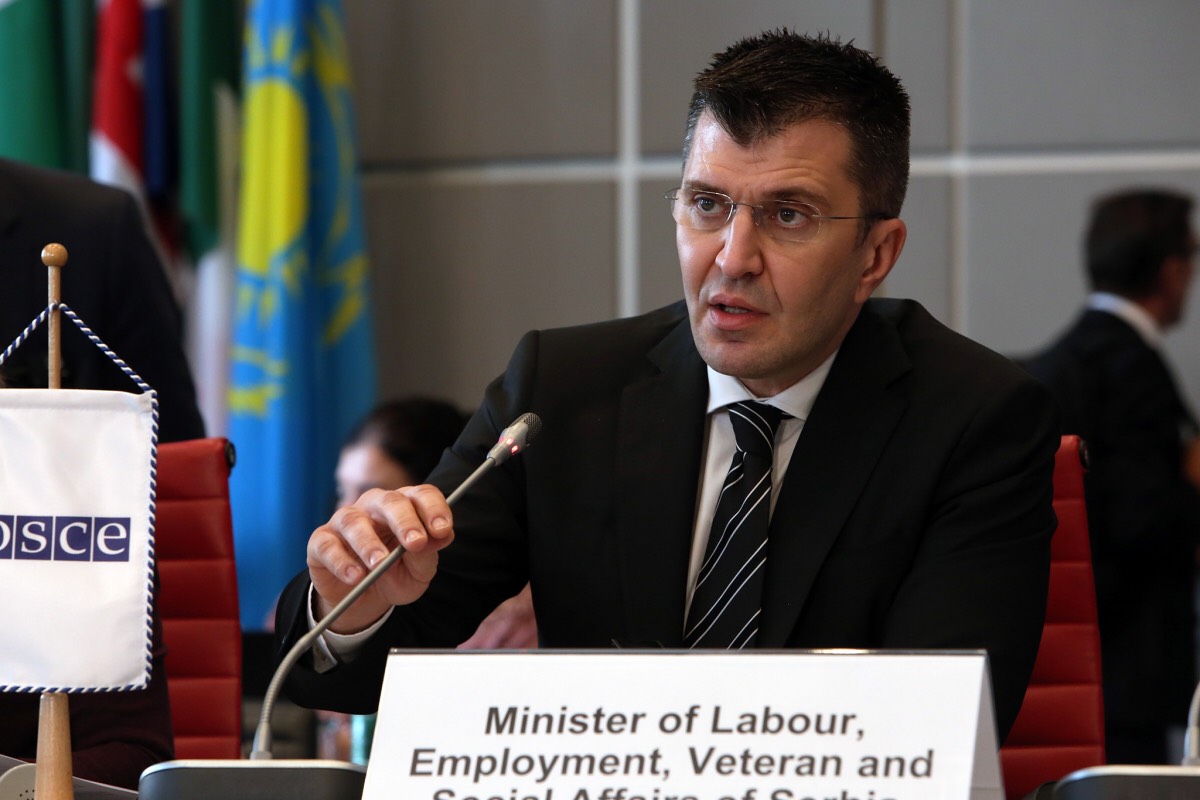Minister of Labor, Employment, Veterans and Social Affairs Zoran Djordjevic opened the Forum for Security Cooperation of the OSCE. The theme of this session of the Forum, which was chaired by Serbia from September this year, was “Security Dialogue: Implementing Resolution 1325 (2000) of the United Nations Security Council – The role of the defense sector in the implementation of RSBUN 1325 (2000)”.

Minister Djordjevic expressed satisfaction with the fact that he is among the ambassadors of the OSCE countries, as someone who has been actively working to improve the position of women in Serbia for more than five years and truly believes in gender equality.
When presenting the results of the implementation of the UN Security Council Resolution 1325 in the Republic of Serbia, the Minister pointed out that in the first four years the National Action Plan focused on implementation in twelve ministries, administrations and agencies in the security system of the Republic of Serbia.
“On my initiative and the proposal of the political council, based on the decision of the Government, its implementation in 2015 was extended to all ministries, four offices of the Government of the Republic of Serbia and the Statistical Office of the Republic of Serbia,” Djordjevic said.
Djordjevic stressed that the political Council assessed that after five years there was a significant shift in achieving the goals of the plan, and that conditions were created to improve the implementation of this resolution in the next five-year period.
“In this regard, the Government of the Republic of Serbia decided to continue implementing the Resolution 1325, developing a new plan that will be implemented by the end of 2020. The second National Plan was adopted in May this year after extensive consultations with women at the local level, civil sector, and non-governmental organizations to be tailor-made for their needs. That is why the focus of the second plan will be to improve the safety of women at the local level and their participation in local authorities and mechanisms dealing with security, “the minister said.
Bearing in mind all the most significant results achieved in the period from 2010 to 2015, Djordjevic emphasized that for the first time in the history of the Serbian Army, professional female soldiers were deployed in multinational operations of the UN in Cyprus, and after that in Each new rotation of units was determined by the number of professional women soldiers.
The Minister pointed out that Serbia is the first non-EU country to receive the gender equality index of the European Gender Equality Institute because it has achieved a better average than the European in many domains.
As Djordjevic explained, the National Action Plan (2017-2020) will include activities aimed at preventing violence against women in multinational operations, conflict and post-conflict rehabilitation of society, crisis and emergency situations, with special emphasis on preventive operations, protection and the recovery of women due to the effects of contemporary challenges, risks and threats that particularly affect marginalized and multi-discriminated categories of population in the Republic of Serbia, as well as migrants.
“Today, as Minister for Labor, Employment, Veterans’ and Social Affairs, which is also responsible for gender equality, I want to make sure that I will continue with this personal commitment to this long-term and persistent commitment to make the world a safer place for all women and men, as well as that in the following period Serbia will continue its fight, be a leader in the region and at the very top in the world when it comes to the position of women in all segments of political and social life, “concluded Minister Djordjevic.
UN Security Council resolution 1325 – Women, Peace and Security was adopted on October 31, 2000 and is one of the most important resolutions of this international organization in the field of peace and security. Resolution 1325 highlights the effects of armed conflicts on women and girls and the importance of women’s role in peacebuilding and the post-conflict recovery of society, and is in line with generally accepted international political and current documents as well as standards relating to peace, security and human rights.